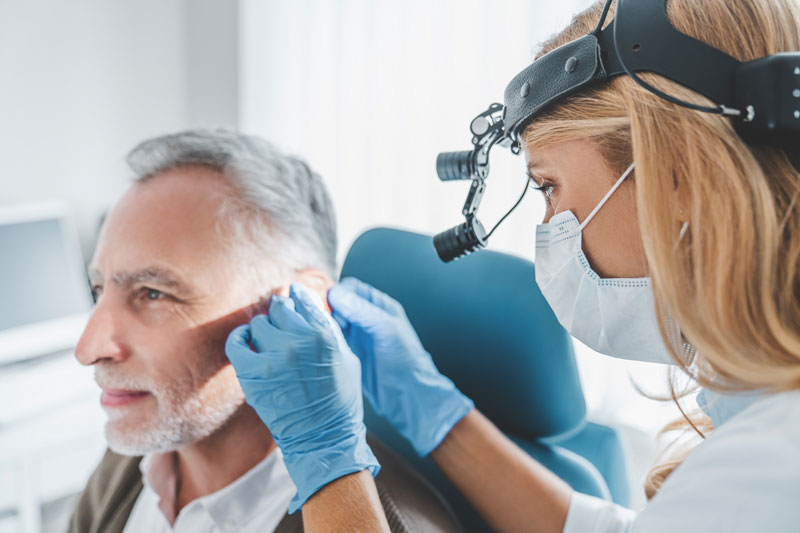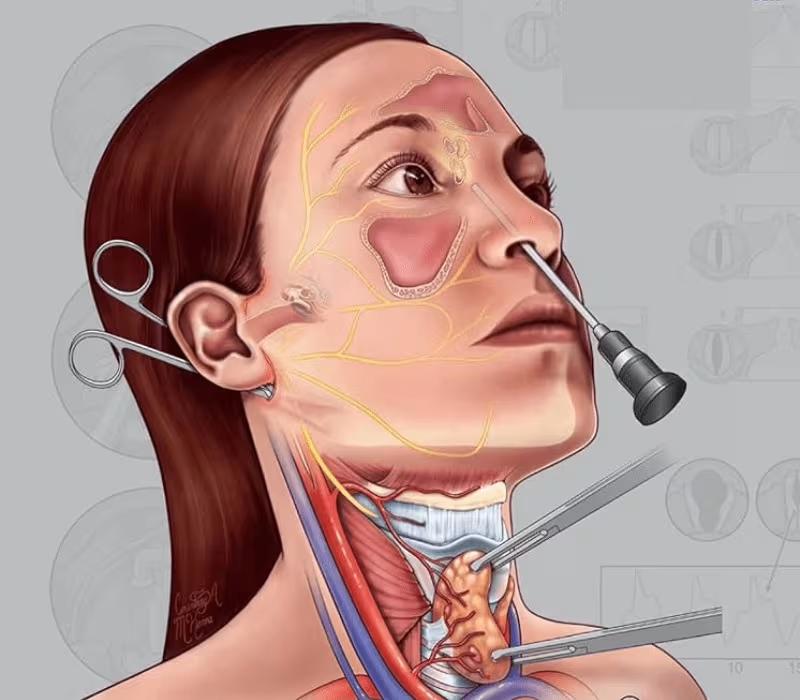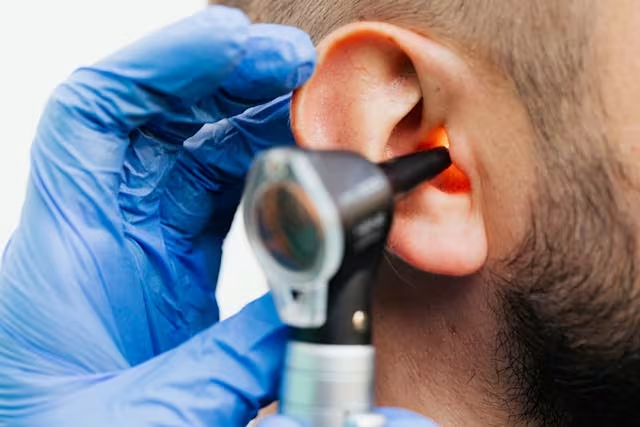Finding the right medical care for ear, nose, and throat conditions requires understanding the specialized field of otolaryngology.
This comprehensive guide explores everything you need to know about ENT specialists in Singapore, from their training and qualifications to treatment options and costs.
Understanding ENT Specialists and Otolaryngology
An ENT specialist, also known as an otolaryngologist or otorhinolaryngologist, is a medical professional who specializes in diagnosing and treating conditions affecting the ear, nose, throat, and related structures of the head and neck.
The term “otolaryngology” derives from Greek roots: “oto” meaning ear, “rhino” meaning nose, and “laryngo” referring to the voice box or throat.
These medical professionals possess unique dual expertise as both physicians and surgeons.
Unlike many other medical specialties that separate into physician and surgeon roles, ENT specialists manage both medical and surgical aspects of conditions within their field.
This comprehensive approach mirrors that of ophthalmologists who handle both medical and surgical eye conditions.
ENT specialists perform a wide range of procedures, from minimally invasive endoscopic and microscopic surgeries to complex open head and neck operations and advanced robotic procedures.
Their surgical capabilities span from simple office procedures to major reconstructive surgeries.
Read more: Which ENT Doctor in Singapore Should You Consider?
Educational Pathway and Professional Development in Singapore
Becoming an ENT specialist in Singapore requires extensive education and rigorous training.
The journey begins with five years of medical education at the National University of Singapore (NUS), followed by one year as a houseman or intern in public hospitals.
After completing their internship, doctors work as medical officers. Since ENT is considered a highly competitive surgical specialty, aspiring ENT specialists typically spend additional time rotating through various ENT departments across Singapore as non-trainee medical officers to gain experience and demonstrate their commitment to the field.
The formal ENT residency program spans five years of intensive postgraduate surgical training. Throughout this period, residents undergo continuous assessment and must pass multiple examinations.
A crucial milestone occurs at the end of the second year when residents must successfully complete the annual national ENT examination administered by NUS.
Upon fulfilling all training requirements and passing the final “Exit” examination at the end of the fifth year, residents qualify as ENT specialists.
The progression continues with a structured career pathway in public hospitals, advancing from Associate Consultant to Consultant and eventually to Senior Consultant based on factors including duration of service, research contributions, administrative responsibilities, teaching involvement, and professional conduct.
Accessing ENT Care: Public vs Private Healthcare Options
Public Hospital Requirements
To receive subsidized ENT care in Singapore’s public hospitals, patients must be either Singaporean citizens or Permanent Residents. Additionally, a referral letter is required from one of the following sources:
- Polyclinic (government-subsidized general practitioner clinic)
- Accident and Emergency Department (for urgent ENT conditions)
- Singapore Armed Forces Medical Officer
Cost Comparison Between Public and Private Care
The financial difference between public and private ENT care can be substantial. Here’s a detailed comparison of typical costs:
| Service | Public (Subsidized) | Public (Private) | Private Hospitals |
|---|---|---|---|
| First Consultation | SGD 35-60 | SGD 100-150 | SGD 100-220 |
| Follow-up Consultation | SGD 30-50 | SGD 70-120 | SGD 80-150 |
| First Nasoendoscopy | SGD 50-125 | SGD 190-400 | SGD 290-500 |
| Follow-up Scope (within 6 months) | SGD 0-20 | SGD 0-50 | SGD 100-200 |
Key Differences in Patient Experience
Convenience and Timing
Public subsidized clinics often have waiting times ranging from two weeks to three months for appointments.
Each clinic session may accommodate 80 to over 100 patients, resulting in lengthy wait times of 1 to 2.5 hours.
Private patients typically experience shorter waiting times, usually less than two weeks for appointments and rarely more than one hour in the clinic.
Continuity of Care
Subsidized patients may see different doctors during follow-up visits due to staff rotations between hospitals.
Private patients consistently see the same ENT specialist, allowing for better continuity of care and stronger doctor-patient relationships.
Diagnostic Equipment
Most private ENT clinics feature endoscope towers that enable patients to view live videos and images during nasoendoscopy procedures.
Public clinics typically perform these procedures without visual displays, though some hospitals have shared facilities available for significant findings.
ENT Subspecialties: Specialized Areas of Expertise
Modern ENT practice has evolved into seven distinct subspecialties, allowing specialists to focus on specific areas of expertise:
1. Otology and Neurotology

Specialists in this field focus exclusively on ear-related conditions, including hearing disorders, balance problems, ear infections, and complex ear surgeries.
They handle conditions affecting both the outer and inner ear structures.
2. Rhinology and Endoscopic Skull Base Surgery
These subspecialists concentrate on nose and sinus conditions, utilizing advanced endoscopic techniques for both routine sinus procedures and complex skull base surgeries.
3. Laryngology
Voice box specialists diagnose and treat conditions affecting vocal cords, voice disorders, swallowing difficulties, and throat-related problems.
4. Head and Neck Surgery

This subspecialty focuses on tumors, cancers, and complex conditions affecting the head and neck region, including major reconstructive procedures.
5. Pediatric ENT
Specialists in this area concentrate on ear, nose, and throat conditions specifically affecting infants and children, addressing the unique anatomical and physiological differences in pediatric patients.
6. Sleep Medicine

These specialists focus on sleep-related breathing disorders, including snoring and obstructive sleep apnea, offering both medical and surgical treatment options.
7. Facial Plastic Surgery
This subspecialty combines ENT expertise with cosmetic and reconstructive facial surgery, including rhinoplasty and facial reconstruction procedures.
Common Conditions Treated by ENT Specialists
ENT specialists manage a diverse range of conditions affecting multiple interconnected systems.
Understanding these conditions helps patients recognize when specialist care may be necessary.
Ear and Hearing Disorders
These include hearing loss (both conductive and sensorineural), chronic ear infections, tinnitus (ringing in the ears), vertigo and balance disorders, impacted earwax, and eardrum perforations.
Nose and Sinus Conditions
These encompass chronic sinusitis and recurring sinus infections, nasal allergies and rhinitis, nasal polyps, deviated nasal septum, nosebleeds (epistaxis), and loss of smell (anosmia).
Throat and Voice Disorders
These comprise chronic sore throat and tonsillitis, voice hoarseness and vocal cord problems, swallowing difficulties (dysphagia), chronic cough, laryngitis and vocal nodules, and gastroesophageal reflux affecting the throat.
Head and Neck Conditions
These consist of thyroid nodules and disorders, salivary gland problems, neck lumps and masses, head and neck cancers, and facial pain and TMJ disorders.
Sleep-Related Disorders
These involve obstructive sleep apnea, snoring problems, and sleep-disordered breathing in children.
Insurance Coverage and Financial Considerations
Medisave Eligibility
Certain ENT procedures qualify for Medisave claims, particularly nasoendoscopy procedures which are classified as Day Surgery with Table Code 1A.
Patients can claim up to SGD 250 in most public hospitals and up to SGD 550 in some private ENT clinics when undergoing eligible procedures.
Private Insurance Coverage
Many private medical insurance plans with riders to cover deductibles will reimburse ENT consultation costs, procedures, investigations, and treatments when nasoendoscopy is performed.
Some private ENT clinics offer direct billing arrangements with insurance companies, providing “cashless” or “e-filing” services for eligible patients.
Integrated Shield Plans
The six approved Integrated Shield Insurers in Singapore that may cover ENT procedures include:
- NTUC Income’s IncomeShield and Enhanced IncomeShield
- AIA’s HealthShield Gold
- Great Eastern’s SupremeHealth and SupremeHealth Plus
- Aviva’s MyShield
- Prudential’s PRUShield
- AXA Shield
Choosing the Right ENT Specialist
Selecting an appropriate ENT specialist involves considering several important factors:
Professional Qualifications
All ENT specialists in Singapore must be accredited by the Singapore Medical Council and Ministry of Health.
It’s important to distinguish between specialists with full ENT qualifications and those with only a Diploma in ENT, as the latter requires significantly less training.
Subspecialty Expertise
Consider whether your condition might benefit from subspecialist care. For example, patients with complex sinus problems may benefit from seeing a rhinologist, while those with head and neck cancers should consult a head and neck subspecialist.
Practice Setting
Decide between public and private care based on your priorities regarding cost, convenience, continuity of care, and waiting times.
Each setting offers distinct advantages depending on individual circumstances.
Communication and Comfort
The doctor-patient relationship is crucial for effective treatment.
Consider factors such as communication style, willingness to answer questions, and your overall comfort level with the specialist.
What to Expect During Your ENT Consultation
Initial Assessment
Your first visit will typically begin with a comprehensive medical history review and discussion of your symptoms.
The specialist will examine your ears, nose, and throat using specialized instruments and lighting.
Diagnostic Procedures
Depending on your symptoms, the specialist may perform a nasoendoscopy, a minimally invasive procedure that provides a detailed view of your nasal passages and throat.
This procedure is generally well-tolerated and provides valuable diagnostic information.
Treatment Planning
Following the examination and any necessary diagnostic tests, your ENT specialist will explain your condition and discuss treatment options.
This may include medical management, lifestyle modifications, or surgical interventions depending on your specific situation.
Maintaining Optimal ENT Health
Preventive Measures
Several lifestyle modifications can help maintain good ear, nose, and throat health:
- Stay adequately hydrated to keep throat and nasal passages moist
- Avoid tobacco smoke and minimize exposure to air pollution
- Practice good nasal hygiene with saline rinses when appropriate
- Protect your ears from loud noises and clean them safely
- Manage allergies proactively to prevent complications
- Practice good vocal hygiene if you use your voice professionally
When to Seek Professional Care
Consider consulting an ENT specialist if you experience:
- Persistent nasal congestion lasting more than a few weeks
- Recurring sinus infections
- Chronic sore throat or voice changes
- Hearing loss or persistent ear pain
- Difficulty swallowing
- Persistent dizziness or balance problems
- Chronic snoring affecting sleep quality
Frequently Asked Questions
What conditions require immediate ENT specialist attention?
Certain symptoms warrant prompt ENT evaluation, including sudden hearing loss, severe throat pain with difficulty swallowing, persistent hoarseness lasting more than two weeks, recurring nosebleeds, or any suspicious lumps in the neck or throat area.
These symptoms may indicate serious conditions requiring specialized treatment.
How long does ENT specialist training take in Singapore?
The complete pathway to becoming an ENT specialist in Singapore requires approximately 11 years after completing secondary education: five years of medical school, one year as a houseman, and five years of specialized ENT residency training.
Additional subspecialty fellowship training may add another 1-2 years.
Can I see an ENT specialist without a referral?
For private care, you can typically make direct appointments with ENT specialists without referrals, though some insurance companies may require GP referrals for reimbursement purposes.
Public subsidized care always requires referrals from polyclinics, emergency departments, or military medical officers.
What is the difference between an ENT specialist and an audiologist?
ENT specialists are medical doctors who can diagnose, treat, and perform surgery for ear, nose, and throat conditions.
Audiologists are healthcare professionals who specialize in hearing and balance disorders but cannot prescribe medications or perform surgery.
They often work together to provide comprehensive hearing care.
How often should I have ENT check-ups?
The frequency of ENT visits depends on your individual health status.
People with chronic conditions like recurring sinus infections, hearing loss, or sleep apnea may need regular monitoring.
Those with allergies or a history of ENT problems should consider periodic assessments even when asymptomatic.
What should I expect during a nasoendoscopy procedure?
Nasoendoscopy involves inserting a thin, flexible tube with a camera through your nose to examine your nasal passages and throat.
The procedure typically takes 5-10 minutes, may involve mild discomfort, and usually doesn’t require anesthesia.
In private clinics, you can often view the examination on a screen in real-time.
Are ENT surgeries considered high-risk procedures?
Most ENT surgeries are considered relatively safe, though risk levels vary depending on the complexity of the procedure.
Minor procedures like tonsillectomies and sinus surgeries have low complication rates, while major head and neck surgeries carry higher risks.
Your surgeon will discuss specific risks based on your individual case.
Can children see ENT specialists?
Yes, pediatric ENT is a recognized subspecialty.
Children commonly need ENT care for conditions like chronic ear infections, enlarged tonsils and adenoids, hearing problems, and congenital abnormalities.
Pediatric ENT specialists have additional training in managing conditions specific to growing children.
What lifestyle changes can improve ENT health?
Maintaining good ENT health involves staying hydrated, avoiding tobacco smoke, managing allergies, practicing good nasal hygiene, protecting your ears from loud noises, and maintaining overall good health.
Regular exercise, adequate sleep, and stress management also contribute to better immune function and reduced infection risk.
How do I know if I need subspecialist care?
Your general ENT specialist can help determine if subspecialist referral is appropriate.
Generally, complex cases, failed previous treatments, unusual conditions, or cases requiring specialized surgical techniques may benefit from subspecialist expertise.
For example, complex sinus problems may require a rhinologist, while head and neck cancers need head and neck subspecialists.
What insurance documentation do I need for ENT visits?
Bring your insurance card, identification, any referral letters if required by your insurance plan, and a list of current medications.
For Medisave claims, ensure you have your NRIC or relevant identification.
Private insurance patients should check with their providers about pre-authorization requirements for certain procedures.
Can ENT problems affect other parts of my body?
Yes, the ear, nose, and throat are interconnected systems.
Sinus problems can cause headaches and dental pain, ear infections can affect balance, throat problems can impact voice and swallowing, and sleep apnea can affect cardiovascular health.
This interconnectedness is why ENT specialists take a comprehensive approach to diagnosis and treatment.

